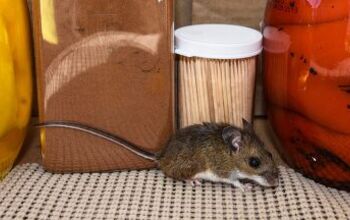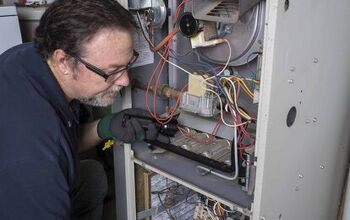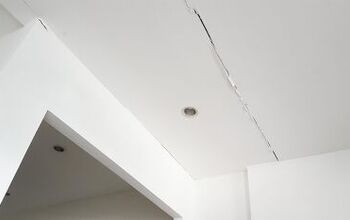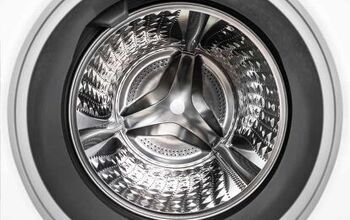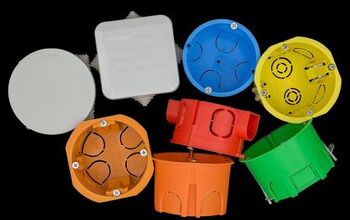Is There a Dead Mouse Smell In Your House? (Find Out Why!)

Smelling a dead mouse in your house is certainly unpleasant; You couldn’t describe the smell better than death itself. Something has taken residence somewhere in your home and died there, now there’s a dead mouse smell in your house. Leaving you to deal with the carcass and the foul odor that comes with it.
If there is a dead mouse smell in your house, it’s likely due to a decaying rodent in your wall, a vent, or some other hidden place in your home. To eliminate the dead mouse smell from your home, you will first have to locate the rodent to remove the source. Then you will need to properly sanitize the area with bleach, vinegar, or other means, and ventilate the building to eliminate the smell completely.
Disposal of the deceased animal will help prevent property damages and health problems. Unfortunately, getting rid of this stench involves more than traditional cleaning methods.
Do You Need Pest Control Services?
Get free, zero-commitment quotes from pro contractors near you.

Locating The Source of The Smell
The only way to truly rid your home of this smell is to dispose of the source. When there is a decomposing rodent somewhere, this means literally sniffing out the carcass.
To find the mouse use your nose; smell around the area of infestation. This could be in places like the attic, or in walls throughout the home. You might also smell the odor coming from one vent in your house.
Another option for finding the body is using a thermal camera. Decaying bodies produce a very small amount of heat. The camera can detect the heat, faintly, and help you find the source quickly.
Where To Check For The Mouse
Using your nose to find a dead mouse may not be as easy as you thought. You can smell the rot, but where is it coming from?
Take your time and pay attention to where the smell is the strongest. Do you remember where you first smelled its pungent odor? Then use deductive reasoning to help sniff around suspected areas.
Mice will often nest in warm places. Attics and walls in the home make perfect places for them to build their nest. A dying mouse will seek the comfort of their nest.
A mouse will leave the safety of their nest in search of water or food when they are dying. Check around pipes in bathrooms and in the kitchen for remains. They may have passed while away from their nest.
What To Do When You Find The Mouse
Knowing where to look is only part of the battle. There is no way to avoid using your nose; unless you have a thermal camera.
Unfortunately, if you’ve found a mouse carcass in your wall, you will need to remove a part of the wall to access the rodent’s corpse. This one deceased animal is now causing a whole renovation project, all over that disgusting smell.
Once you can access the body, it’s time to get rid of the mouse. First, you should bag it up; make sure you’re wearing gloves. Be careful not to touch the rodent with bare hands. You can catch a disease and will surely pick up some nasty bacteria.
Use a paper towel or cloth that you can dispose of to move the animal into a bag. After bagging the animal for disposal, you should clean and disinfect the area.
Cleaning The Infested Area
The infested area refers to the space in which the rodent resided or died. In some cases, this place will be the same, but not always.
Cleaning and disinfecting the area where the animal died will help reduce the lingering smell. It will also protect the home from bacteria that have gathered from the decomposition of the mouse.
Wearing protective gloves can prevent you from touching harmful bacteria on the deceased animal. The CDC recommends using a water and bleach mixture.
Spray the body and the infested area with the solution and let it sit for 5 minutes before removing the body. Spraying the body will kill bacteria on and around the corpse.
Most rodent control professionals will recommend using an enzymatic cleaner. Enzymes in the cleaner will break down bacteria quickly, ensuring the best clean possible.
Alternate Cleaning Methods
Need to clean the infested area, but unsure of what to use? Here are some other cleaning tips for removing the dead mouse smell in the house.
Bleach
Bleach solutions can be used to disinfect an area as well as deodorize it.
To make the solution use 1 part bleach for every 10 parts water. Then let the bleach water soak the area. The longer the solution sits, the more effectively it will kill bacteria. The recommended time to let a contaminated area sit is 10-15 minutes.
Commercial Cleaners or Disinfectants
Choosing the right cleaner can be tough with so many options.
Try choosing a cleaner intended to clean the area you are trying to disinfect. For example, using tile cleaner on tile, as opposed to on carpet. Using the correct type of cleaner helps to get rid of any lingering odors.
Make sure to read all instructions on the cleaning product to avoid unwanted problems or accidents.
Vinegar
Many people often use vinegar as a deodorizer.
Spraying vinegar around the area can help take away the scent. Another method is to leave cups of vinegar around your house to absorb the odor over time.
These methods may leave a lingering smell of vinegar. This is typically tolerable and will fade in a few short days. It’s certainly better than the smell of dead mouse lingering in the house.
Baking Soda
Another kitchen ingredient that has excellent deodorizing properties is baking soda.
Mix baking soda into a spray bottle of warm water. Spray this mixture frequently over the area to help erase the smell.
Charcoal
Charcoal is a natural deodorizer that absorbs smells over time and filters the air.
Place charcoal briquettes around the house and infested areas to get rid of the foul smell. It’s best to use natural chunks of charcoal with no additives to eliminate the odor.
Another method of using charcoal to rid of the smell is to purchase premade charcoal bags. These are specifically purposed to get rid of residual odors in spaces by naturally filtering the air.
Proper Disposal of the Mouse
It is essential to dispose of a decomposing carcass properly. Doing so will help avoid a health hazard and prevent other problems from occurring.
Here are the proper disposal steps:
- Wear gloves and other protective gear to prevent catching a disease from the carcass.
- Spray the sanitation solution of your choice over the infested area and the dead rodent.
- Let sit for a few minutes. The CDC recommends 5 minutes.
- Use a paper towel or rag to place the rodent in a disposable bag.
- If you see any nesting material or feces, you can dispose of these in the same bag.
- Tightly seal the bag with the carcass; do not push any air out of the bag. Viruses can escape the bag this way, mixing with the air and causing health problems.
- Place the sealed bag into another bag and tightly seal the second bag.
- Once double bagged, you can now dispose of the remains in the trash.
- Make sure to wash the gloves in soap and water before disposing of them.
- Wash your own hands after everything has been appropriately disposed of.
Making Your Home Smell Better
Air out your home by turning on fans and opening doors and windows. This will allow air from inside to flow out of the house freely.
You can also use deodorizers, like air fresheners or incense, to cover the smell. However, remember that these will not eliminate the odor; they will only mask it. Removing the deceased animal and proper cleaning are the only ways to remove the smell completely.
Hire A Professional
While you can sniff out a dead rodent by yourself, it is not pleasant. Having to smell decaying mice is terrible enough without having to dispose of it too.
These animals can surely cause a lot of mess. If one dies in the wall or ceiling, you’ll need to open the area up to remove the carcass. When removing an animal involves putting holes in the walls, it’s better to have a professional do it.
A professional pest removal person will have more experience in sniffing out dead rodents. This means potentially fewer holes in the wall than if you were trying to do it yourself.
Hiring a professional means they will remove the carcass and sanitize the area where the animal died. They will also remove and repair walls if necessary. This will save you time and energy in the long run.
Having someone come to inspect the situation could be what’s best for your home. A professional can also provide preventative measures by setting up traps or blocking entryways for rodents. This can minimize the risk of a similar situation happening again.
Ultimately, a professional can save you a lot of time and effort in the long run. This way, you’re not dealing with the problem yourself but leaving it in the hands of a capable professional.
Do You Need Pest Control Services?
Get free, zero-commitment quotes from pro contractors near you.

Related Questions
What does a dead mouse smell like?
Dead mouse has the scent of foul-smelling rotten cabbage. The smell comes from the methane, hydrogen sulfide, ammonia, and pyruvic acid released by the corpse.
How long does it take a dead mouse to decompose?
It typically takes around 2-3 weeks for a dead mouse to decompose completely.Contacting a professional to remove the rodent and rebuild walls is an option, but this can be costly. Often the cost deters people from hiring a professional to do the job. Even after the mouse has completely decomposed, it can take up to two weeks before the smell fully clears.
Is the smell of a dead mouse dangerous?
A dead mouse is stinking up your home, but is this smell dangerous to inhale?Corpses give off a pungent odor. This scent is caused by the release of toxic gases being expelled from the decomposing body. These toxic gases can be harmful when inhaled in large amounts. However, one decomposing mouse will not produce high levels of these toxic gases.It is recommended to deal with the odor as soon as possible. The stench of a dead mouse could also be another critter that has died within your home. Other larger-sized rodents could pose a health hazard if left to decompose naturally.

Stacy Randall is a wife, mother, and freelance writer from NOLA that has always had a love for DIY projects, home organization, and making spaces beautiful. Together with her husband, she has been spending the last several years lovingly renovating her grandparent's former home, making it their own and learning a lot about life along the way.
More by Stacy Randall










